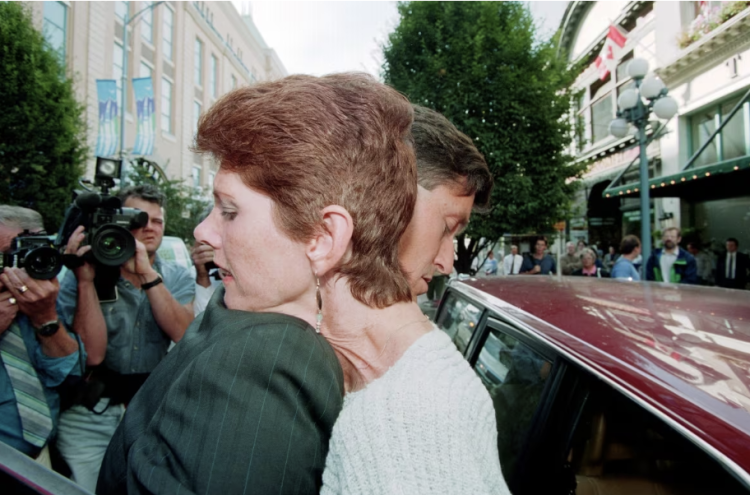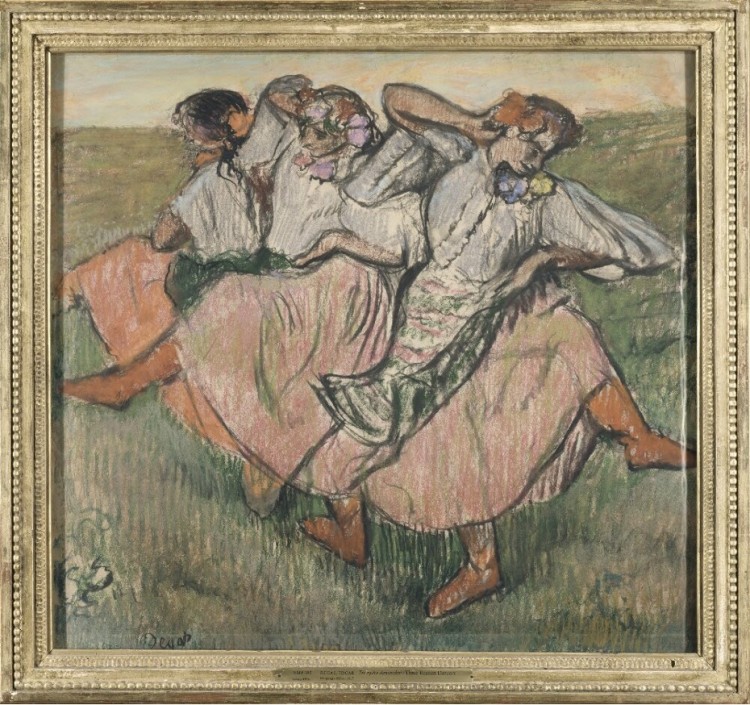

‘The Life and Death of Gloria Taylor’ by The Fifth Estate, CBC News
- Title ‘The Life and Death of Gloria Taylor’ by The Fifth Estate, CBC News
- Author The Fifth Estate, CBC News
- Year 2012
- Language English
- Tags Constitutional Litigation Fear of Being a Burden High Profile Cases
- Legislative context Criminal Code, 1985, s 241 (Canada)
- Author of entry Robyn Otto
This 40-minute documentary follows Gloria Taylor’s decline from amyotrophic lateral sclerosis (ALS) in the final year of her life. In parallel, it follows the legal team at the British Columbia Civil Liberties Association (BCCLA) as they argue the Carter case before the British Columbia Supreme Court (BCSC). As the film documents those two arcs, it explores Gloria’s desire for a medically assisted death and arguments for and against legalization. Gloria describes her pursuit of a medically assisted death as stemming from a desire to avoid death by starvation or dehydration after a withdrawal of care. In opposition to this desire, Dr. Will Johnston, then-President of Physicians for Life advances the perspective that there is a ‘world of difference’ between palliative care, including terminal sedation or withdrawal of care, and ‘actively killing the patient’ through assisted suicide or euthanasia. The documentary highlights Gloria’s relief and joy when the BCCLA wins their case before the BCSC and closes on her final decline with ALS before her death.
In the documentary, Gloria asks, ‘Where does the government get off thinking they have a right to tell me how to die?’ The filmmakers draw parallels between Gloria and Sue Rodriguez. Both Gloria and Sue suffered from ALS and became faces of the right to die movement in Canada. In 1991, Sue famously asked, ‘Who owns my life?’ as she undertook a constitutional challenge to the Criminal Code provisions that outlawed medical assistance in dying. Two decades later, Gloria was one of the plaintiffs in the Carter case, which successfully challenged those same Criminal Code provisions. The Carter case is so named after Lee Carter, the daughter of Kay Carter, who died by assisted suicide at Dignitas, a Swiss clinic that provides legal, assisted suicide to non-residents. After accompanying her mother to Switzerland, Lee and her husband, Hollis Johnson, filed a legal case arguing that Canada’s ban on medically assisted death violated the Charter of Rights and Freedoms. They argued their case with co-plaintiffs Dr. William Shoichet, a family physician who was willing to practice medical assistance in dying if the prohibitions were struck down, and the BCCLA. Gloria was added as a plaintiff after hearing a news story about the case and contacting the BCCLA. As someone who was terminally ill, but who did not have the financial means to travel to Switzerland, Gloria became the public face of the Carter case. Through the case, Gloria was the first Canadian to be granted a right to die through a constitutional exemption from the BCSC. Ultimately, she did not use the exemption and died from an infection on 4 October 2012. Four years after Gloria’s death, the Carter case resulted in the legalization of medical assistance in dying in Canada.
Suggested citation
-
The Life and Death of Gloria Taylor, Assisted Lab’s Living Archive of Assisted Dying, March 2024 <link>
Media citations
- Inside Gloria Taylor’s battle for the right to die, CBC News, 12 October 2012 → cbc.ca
- Jean Winter, Thoughts on ‘The Life and Death of Gloria Taylor’, Blog, retrieved 15 January 2023 → jeanawinter.com
- Behind the Scenes: Gloria Taylor, CBC News, 2012 → cbc.ca
- Jennifer Zielinksi, The story of Gloria & Me, Castanet, 2015 → castanet.net
Interest Group citations
- Update on Assisted Suicide, Council of Canadians with Disabilities, retrieved 15 January 2023 → ccdonline.ca
- In Memory of Gloria Taylor, British Columbia Civil Liberties Association, 2012 → bccla.org
- Media Watch, International Palliative Care Resources Center, 2012 → ipcrc.net
- Disability, Dignity and Medical Aid in Dying (Discussion Questions), Nova Scotia Health Ethics Network, 2015 → nshen.ca
Related Media
Film
Gloria and Me, David McIlvride and Jiri Bakala
- Gloria and Me, David McIlvride and Jiri Bakala dailymotion.com ↗
Related Archival Entries
'A Message to the Standing Committee on Justice and Solicitor General' by Sue Rodriguez

Sue Rodriguez
In this videotaped address to Parliament, Sue Rodriguez, who was dying of ALS and wanted an assisted death, asks ‘If I cannot give consent to my own death […] who owns my life?’ While the Supreme Court of Canada heard her case in 1993 and ultimately decided against her, the publicization of Rodriguez’s story informed much public thinking about assisted dying laws in Canada.
'A Good Death' by Jason Warick

Jason Warick; CBC News
A Good Death is a profile of Saskatoon artist Jeanette Lodoen before, during, and after her death by medical assistance in dying. She granted CBC News unrestricted access to herself and her family in her final days because she wanted to share what an assisted death is like with families, health professionals, and lawmakers.
'The Death Debate' by Kevin Eastwood

Kevin Eastwood (Director and Producer)
This 2016 documentary provides a behind-the-scenes view of the legal team at the British Columbia Civil Liberties Association as they bring the Carter case to the Supreme Court of Canada. The Carter case led to the legalization of assisted death in Canada and this change in the law is presented in a favourable light through the filmmaker’s editorial choices.